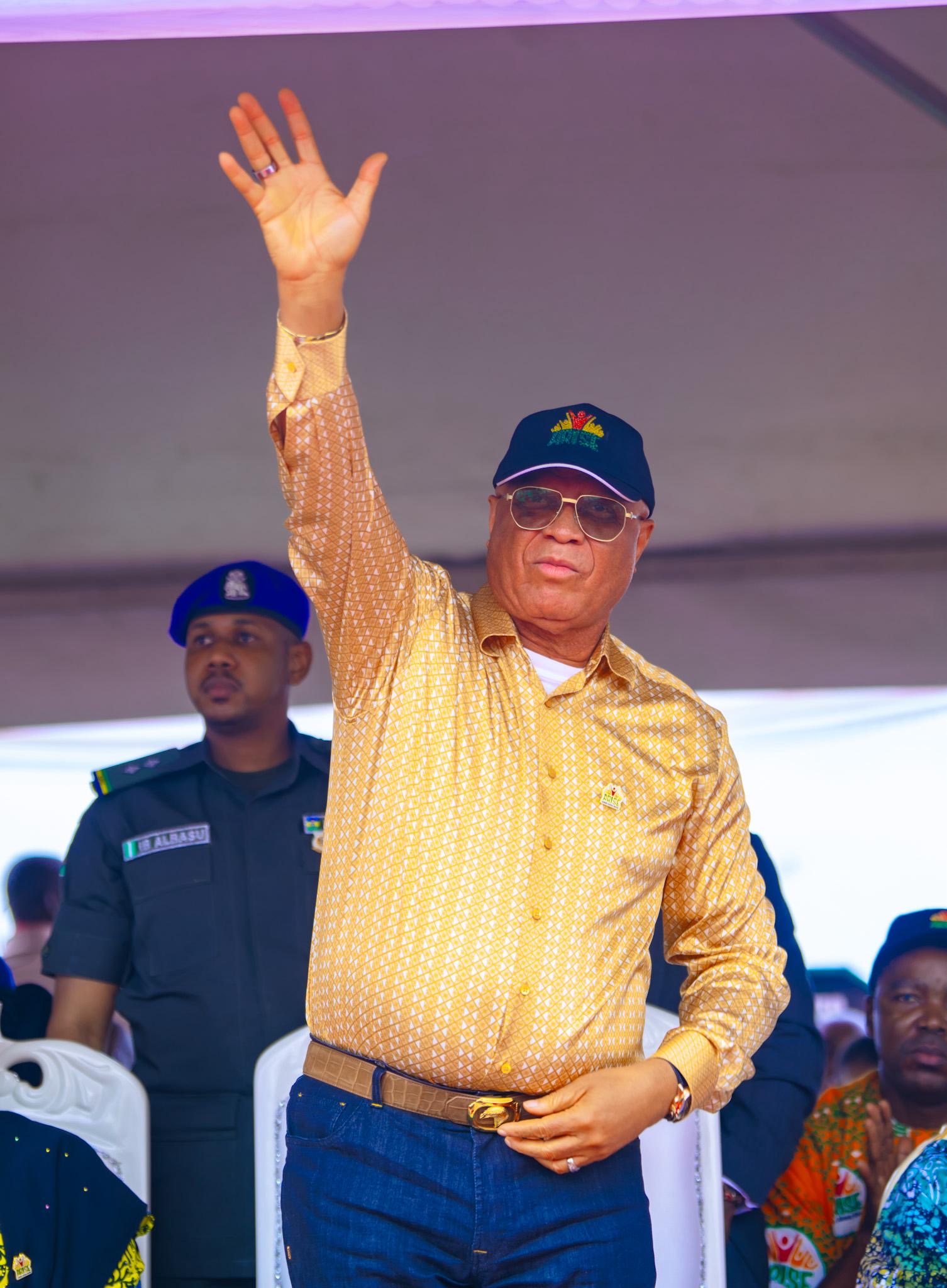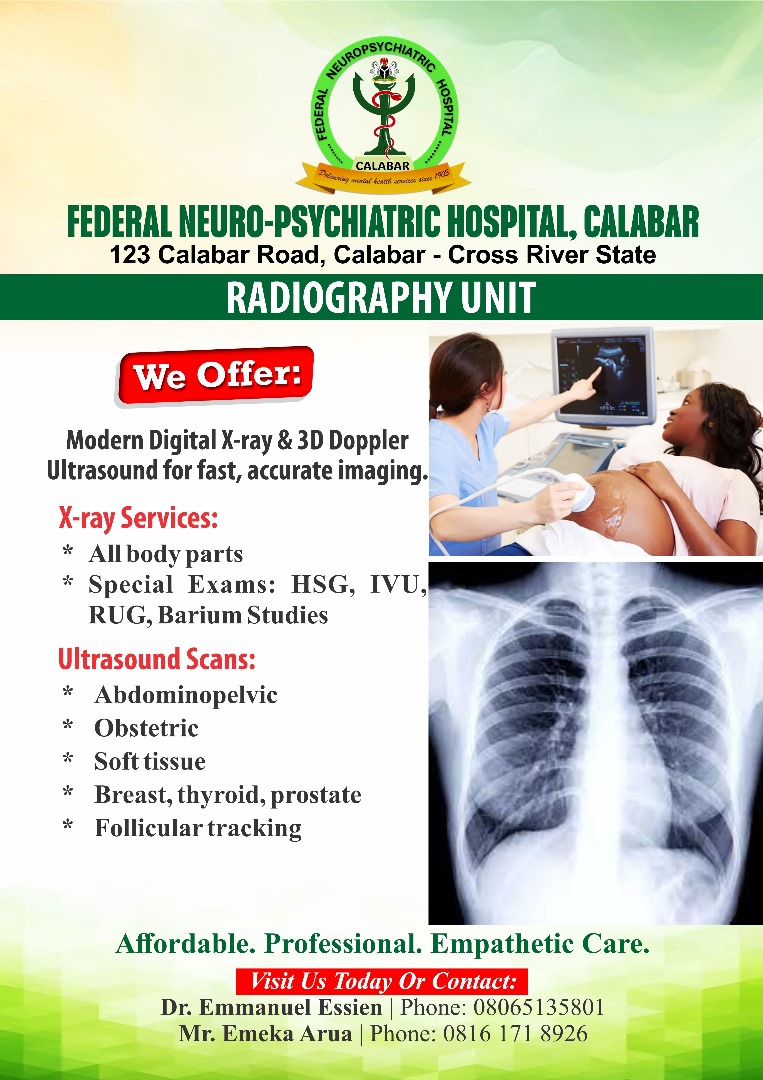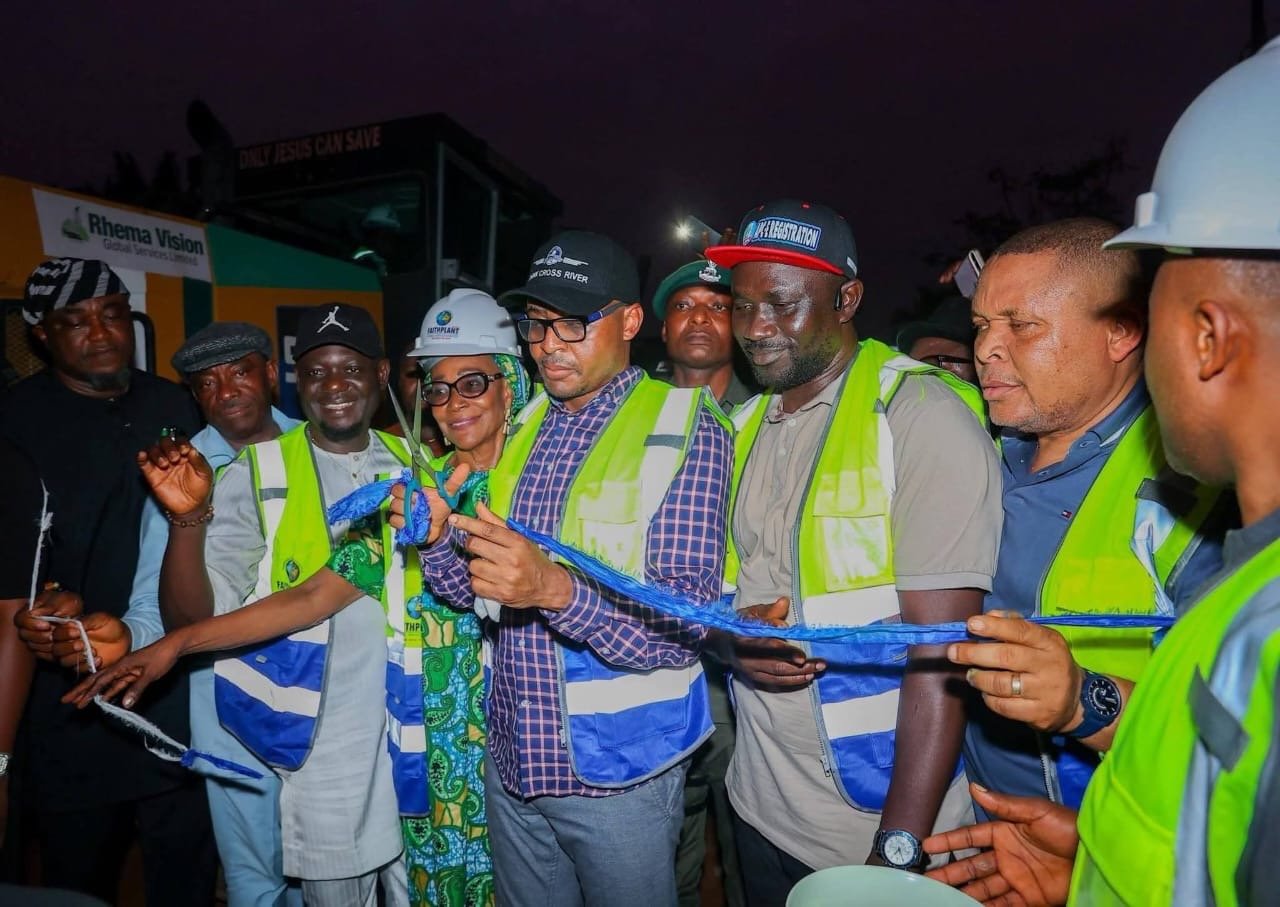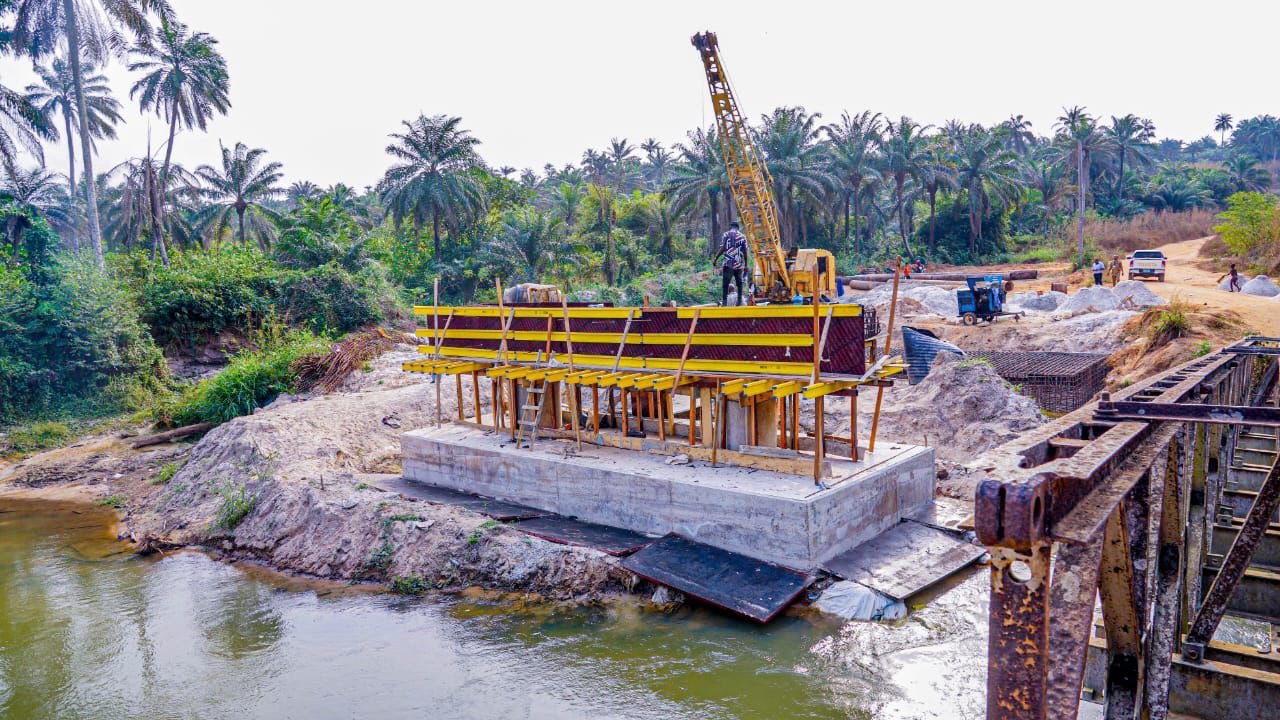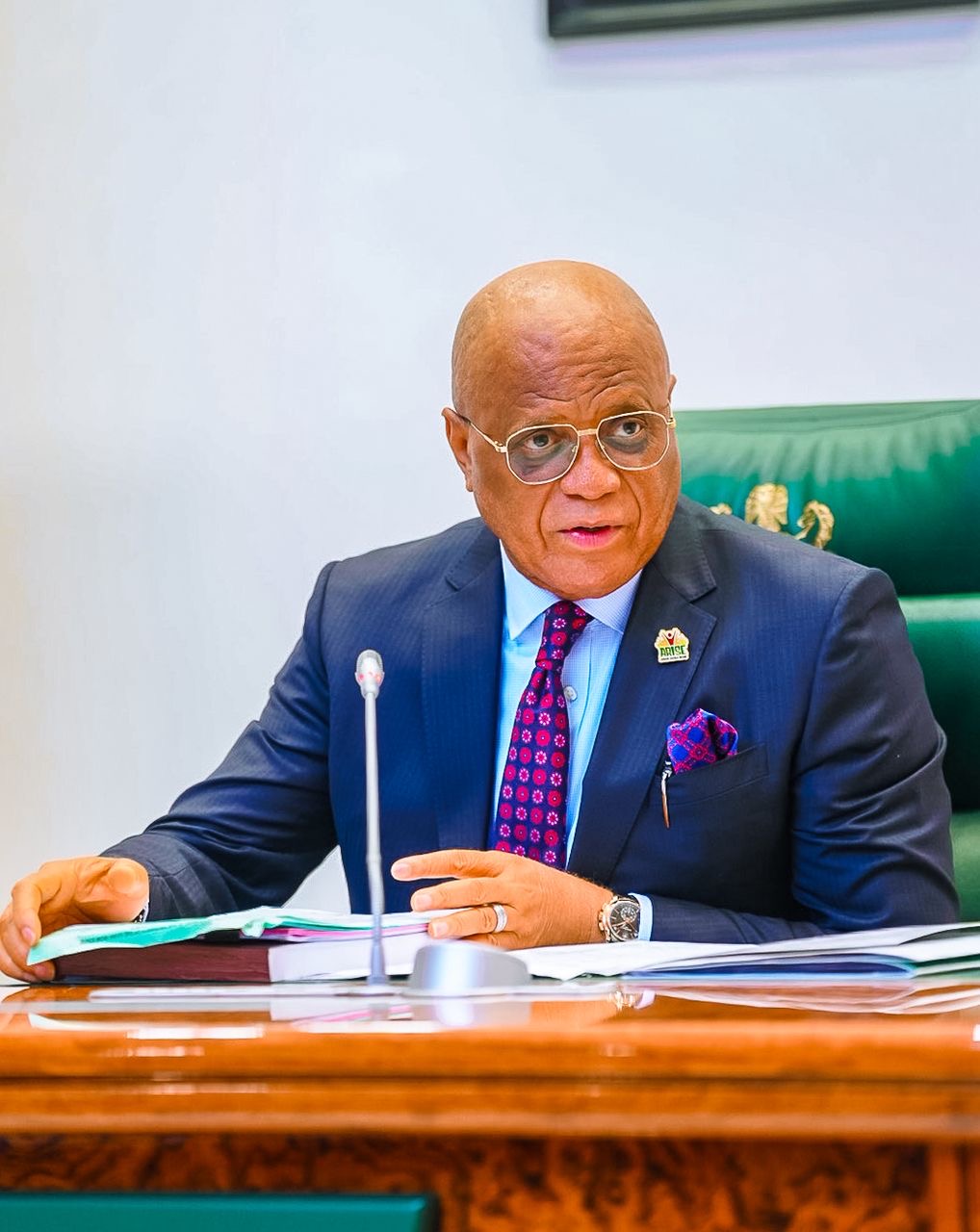Gov. Umo Eno.
By Etim Etim
It is a rare sight in this country for officials to submit themselves to unpaid-for media interviews, and more uncommon for a governor to open himself up for public appraisal and scrutiny.
What we see often is a practice known as ‘’media chat’’, which is essentially a sponsored session in which selected journalists assemble to ask pre-approved questions in government houses. FCT Minister, Nyesom Wike has dominated the ‘’media chat’’ market in the last two years. He deserves an award.
But on Thursday, Gov. Umo Eno of Akwa Ibom State decided to do something different. He invited civil society organizations; journalists; academia, businesspeople and other stakeholders for an open forum of impact assessment of his socioeconomic blueprint known as the ARISE Agenda. The theme was: ‘’Measuring Progress, Deepening Impact’’. It was held in the Banquet Hall of the Government House in Uyo.
I didn’t know what to expect when I received the invitation, but it turned out to be a three and half hours of a comprehensive appraisal of what the administration has done, areas that need improvement and what will follow in the years ahead. The chief appraiser was Prof. Chris Ekong, a professor of Economics and former Dean of Social Sciences at the University of Uyo.
He presented over 30 slides on every aspect of the governor’s ARISE Agenda, evaluating each item and determining its overall socioeconomic impacts. ARISE is acronym for: Agricultural revolution, Rural Development, Infrastructure and Industrialization, Security, Education and Economic Empowerment. The Agenda has seventeen specific areas designed to guide the administration.
The governor said the session was a fulfillment of the promise he made at his inauguration ‘’to occasionally present our scorecard to the public so they may know where we are going as a state and how we have so far utilized the resources available to advance the vision of our governance blueprint- THE ARISE Agenda’’. More like a time to pause, to measure, to ask the hard questions that strengthen institutions and sharpen focus, according to Secretary to the State Government, Enobong Uwah.
A 45-minute documentary detailing the government’s programmes and project was also played, after which was analysis by a panel of made up of eminent economist and former board member of the CBN, Prof Akpan Ekpo; Nancy Ilo-Nnaji (AIT anchor); Terry Ikumi (Channels TV anchor), and Aniekan Umanah, Commissioner Information, who moderated the discussions.
Prof. Ekpo made two important suggestions which I had stressed in my articles sometime ago. One, the government should produce a long-term plan for the state and incorporate the ARISE blueprint into it and two, the government should open a reserve account and save money for the rainy day.
Another important point that stood out in the course of the day was that Akwa Ibom government under Umo Enoh has not borrowed a penny in spite of the 50 different high-profile projects it’s executing and reduction in the backlog of pensions and gratuities liabilities from N90 billion to N78 billion. This is quite unlike the federal and some state governments which are borrowing heavily to fund their budget deficits.
How is Akwa Ibom managing to avoid borrowing? Eno attributes it to prudence and fiscal discipline. ‘’One of the first things I did shortly after I took office was to set up a unit known as Internal Evaluation Team domiciled in my office to help streamline and eliminate wastages in our procurement processes’’, he said.
Otherwise called Delivery Unit (DU), the team is staffed with engineers, architects, quantity surveyors and other professionals in the construction industry. Its mandate is to review all contract bids and documents, conduct market intelligence on bid prices submitted and ensure that contracts are not inflated while government obtains value for money. It’s the first of its kind in the state and it has gone a long way in controlling project costs through various methods. DU guarantees that no project is approved without approved designs, which is a clear departure from the past when major contracts were awarded without project designs and this led to abuses and corruption.
DU has also institutionalized project delivery routines through Project Advisory Committee. Delivery Advisors and EXCO meet every two months to determine and review each project cycle. To further improve procurement processes, the government also works closely with international partners like the Tony Blair Institute which advise on global best practice in procurements.
Among the mega projects being undertaken by the government are a hotel in Abuja; a high rise residential building in Lagos; housing estates Shopping complex; convention center; refurbishment of Ibom Hotel & Golf Resort and ARISE Park, a recreational and leisure park with a nine-hole golf course, all in Uyo. In the audience at the appraisal event were the two ministers – Atiku Bagudu (Budget and National Planning) and Ekperikpe Ekpo (Gas) as well as the representatives of the Statistician of the Federation and Director General of the Nigerian Governors Forum; business people and politicians who all commended Eno for his approach to governance.
With a private sector background, appraisals and periodical reviews are not strange to me. But a governor that allows himself to be appraised by the public is not a common sight.
Eno is therefore adjudged strong in three key areas: One, accountability, which is recognizing the public’s right to evaluate his performance and be transparent about his actions; two, humility – the willingness to listen to feedback and criticisms from the public and three, commitment to good governance – embracing the principles of good governance, which include accountability, transparency, and responsiveness to the public.






